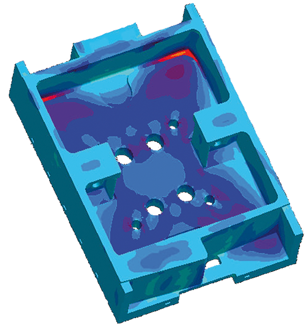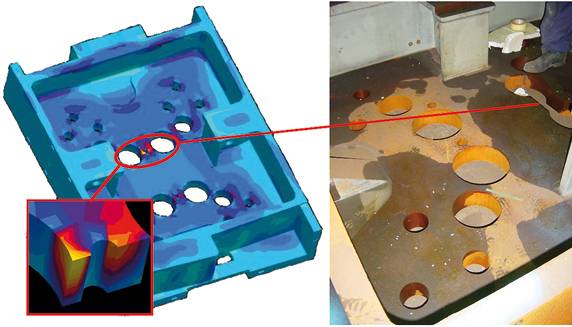Avoiding Casting Cracking During Machining
A load of cast iron machine beds was manufactured and shipped as-cast to the end user. During heavy machining of the part, several of the castings completely cracked. The foundry was blamed by the customer for inadequate casting practice.
A simulation of residual stresses clearly confirmed that the casting stresses were still moderate and far below any yield stress when the casting was shipped. Due to the machining, the existing residual stresses were redistributed, which led to a local stress concentration substantially exceeding the tensile strength of the material. This resulted in the failure of the casting at the customer site.
This case demonstrates the need for the foundry and casting consumer to talk to each other prior to manufacturing in order to understand the impact of all process steps on the final component’s quality.
* Courtesy of Coupe Foundry, UK

